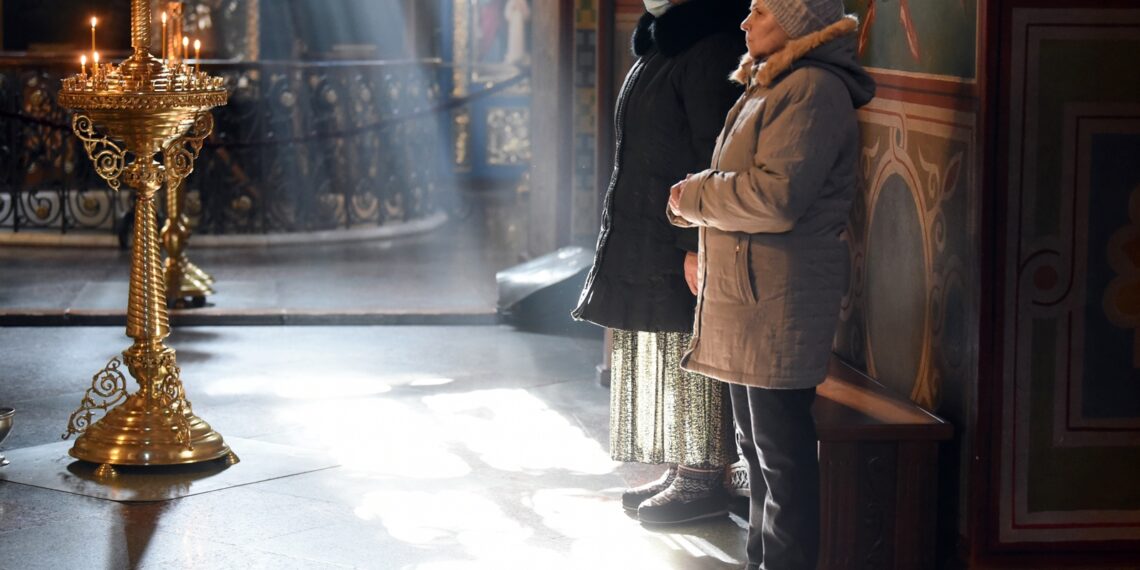Ecumenical Patriarchate may establish a temporary Exarchate to resolve church crisis in Ukraine
10 November 15:50
The Ecumenical Patriarchate may intervene in the settlement of the church situation in Ukraine by creating a temporary Exarchate for some of the faithful and clergy of the former UOC (MP) who want to break ties with Moscow but are not ready to join the Orthodox Church of Ukraine. This is stated in an analysis by the Orthodox Times, reports "Komersant Ukrainian".
The analysis notes that such a step would avoid the politicization of the church issue and help preserve the unity of the Orthodox world.
Risk of political interference
Internal contradictions in Ukrainian Orthodoxy are fueled by mutual distrust, and conflicts over churches and communities are multiplying faster than examples of understanding. Law No. 3894, which obliges the UOC (Metropolitan Onufriy) to sever ties with Moscow, demonstrates an attempt to solve the church problem by political means, which is beneficial to external actors.
Within the framework of peace negotiations, Russia is promoting the idea of a “special status” for structures subordinate to Moscow. Such formulas can probably be included in future agreements, but they do not heal the church division, they preserve it.
If the Ecumenical Patriarchate does not propose its own canonical solution, there will be a temptation to replace church healing with political compromises, which should be avoided. This is not only a right but also a pastoral duty of the Patriarchate.
After the Tomos: autocephaly is there, unity is not
The Great Council of 2018 in St. Sophia of Kyiv united a part of the Orthodox of Ukraine, who received the Tomos of autocephaly. However, despite this historic step, full unity has not been achieved.
Those who received the Tomos had a mission of unity, but the methods used often contradicted Christian ethics and the canonical spirit. Therefore, today the Ecumenical Patriarchate must complete its mission to help restore the unity of Ukrainian Orthodoxy.
Canon law as an instrument of the Ecumenical Patriarchate
In the Orthodox tradition, there are clear tools that belong to the prerogatives of the Ecumenical Throne:
- the right to hear appeals (ekklitos),
- the right to form stavropegia and exarchates,
- the right to be the supreme arbiter in disputes.
These mechanisms have been established and confirmed both in modern fundamental documents of the Church and the state. The Tomos of Autocephaly for Ukraine retained the right to appeal to the Ecumenical Patriarch and clearly provided for the use of the above-mentioned instruments, acceptance of appeals, and the establishment of Stavropegia and Exarchates. The statutes of the new church structure in Ukraine recognize the priority of the Tomos and the procedure for appealing to the Mother Church, the Ecumenical Patriarchate. Moreover, the agreement between Ukraine and the Ecumenical Patriarchate enshrines at the state level the provisions that form the basis of the Tomos.
Thus, the creation of the temporary Exarchate does not contradict the Tomos, but rather helps to implement its provisions.
The essence and tasks of the temporary Exarchate
The Exarchate can become a transitional structure for those who wish to leave the Moscow Patriarchate but for various reasons cannot join the OCU.
Its goal is to gradually achieve:
- theoretical unity (recognition and reconciliation),
- practical unity (Eucharistic communion),
- institutional unity in the future.
The Exarchate would provide pastoral leadership, canonical discipline, educational standards, and ministry coordination until healing is possible within one Church.
Benefits for believers, the state, and the Orthodox world
For believers, it means protection from political and administrative persecution.
For the state – fewer conflicts and transparent procedures without interference in theological issues, which will improve the image of Ukraine internationally.
Reports by the USCIRF (2024 ) and the Office of the United Nations High Commissioner for Human Rights have already drawn attention to the risks of excessive restrictions on religious freedom in Ukraine. The Provisional Exarchate could be a positive example of a balanced approach.
The principle of “no coercion” is a prerequisite for trust
As early as 2018, the Holy Synod of the Ecumenical Patriarchate emphasized the inadmissibility of violence and administrative pressure in the regulation of church life.
The Provisional Exarchate, on the other hand, would rely on voluntariness and pastoral care, not on statistics or competition between structures.
Why we need to act now
Delaying the resolution of the Ukrainian church issue creates the risk of political interference and the threat of a long-lasting split. This will weaken not only Ukrainian Orthodoxy but the entire system of inter-Orthodox relations.
The Ecumenical Patriarchate must act now – not as a party to the conflict, but as a guardian of unity and peace.
Technical basis for implementation without politicization
The Ecumenical Patriarch can define the basic principles of the Exarchate:
- voluntary participation,
- clear timeframes,
- rules of interaction with the OCU,
- legal mechanisms for resolving property issues.
We can start with pilot structures – temporary stavropegia under the direct supervision of the Patriarchate. Over time, they can evolve into an Exarchate, and after achieving unity, they can be dissolved.
The proposed Exarchate does not deny what has been achieved, does not politicize the problem, but returns the Church to the canonical field.
It does not create winners and losers, but forms a common space for reconciliation.
Unity is not an administrative act, but a state of the Body of the Church. It cannot be imposed, but can be nurtured through peace, reasoning, and love.
The author of the analysis concludes that the temporary Exarchate is a balanced but decisive step in this direction. If it is implemented today, tomorrow they will not talk about statuses, but about the common Chalice. And it is this ministry of preserving unity in action that the world expects from the Ecumenical Patriarchate today.









